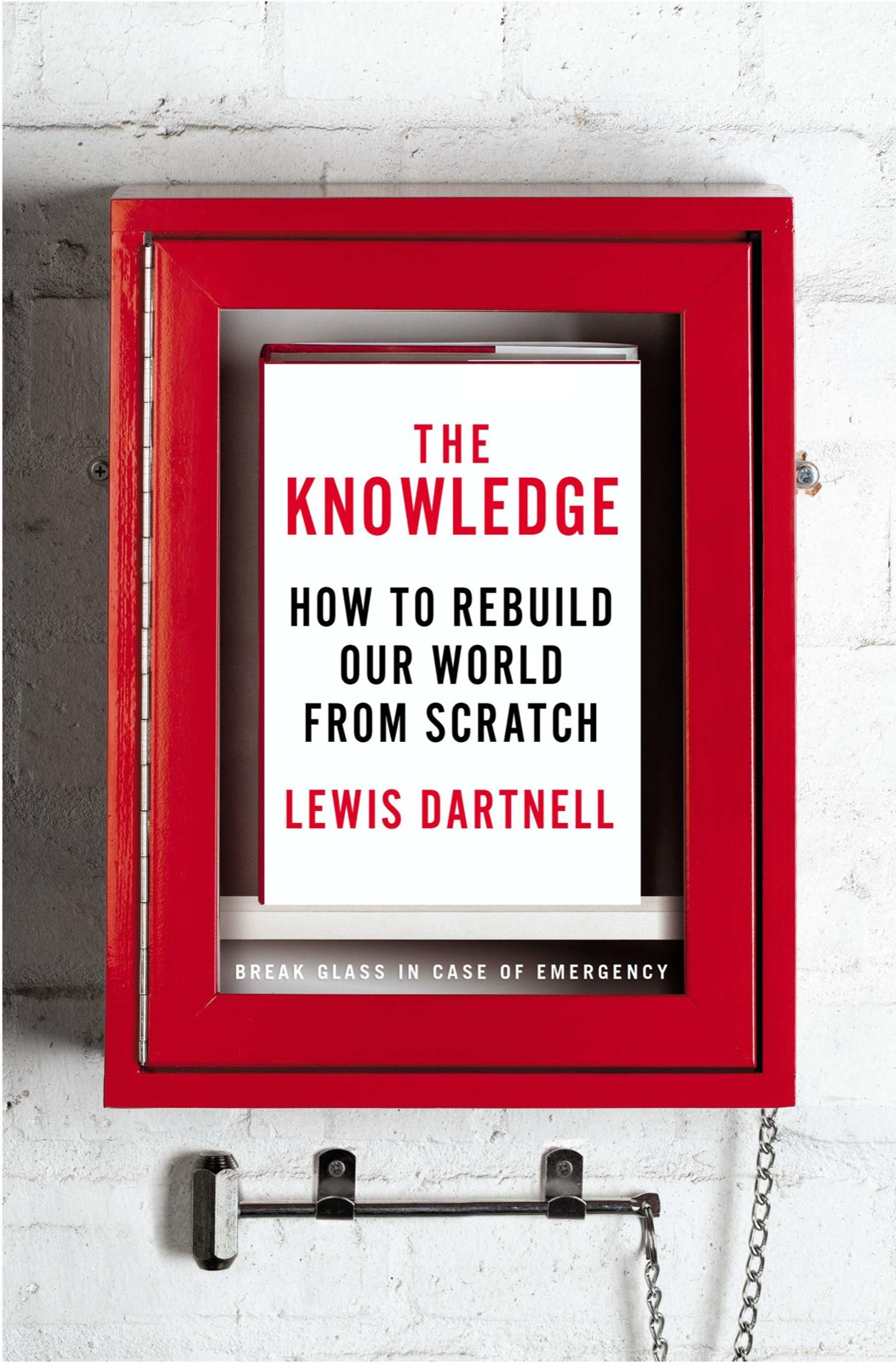
The Knowledge
How to Rebuild Civilization in the Aftermath of a Cataclysm
کتاب های مرتبط
- اطلاعات
- نقد و بررسی
- دیدگاه کاربران
نقد و بررسی

August 4, 2014
With breezy aplomb in this fast-paced, detailed guide, Dartnell (Life in the Universe) takes us through a hypothetical post-apocalyptic scenario. He covers not only the little steps for making it through the first 48 hoursâfinding shelter, clean water, foodâbut through the longer processes of "rebooting civilization" such as reinstating agriculture, recovering medicine and medical knowledge, and re-establishing communication, among others. This isn't simply a bare bones guide to how many water bottles or rolls of duct tape to stockpile in anticipation of a global disaster. Dartnell draws deeply on the scientific fundamentals of each step required to rebuild society to the level at which we now live. For example, as we re-establish communication with others, the first step will be writing. In order to make paper we'd need to "pour a dollop ofâ¦sloppy cellulose soup across a fine wire mesh or cloth screen, bounded on the sides by a frame." To get the power back on, we'd need to build four-sail windmills or waterwheels to harness the natural forces necessary to generate electricity. If a nuclear catastrophe or a viral epidemic destroyed our world tomorrow, this would be a vital survival guide.

April 1, 2014
A survival manual for the zombie apocalypse, the plague or whatever else will bring us down and require a reboot of civilization. First worlders take that civilization and its comforts for granted. But imagine what would happen if, say, an asteroid hit the Earth or someone unwisely set off a nuclear bomb that triggered others around the world. Who would make the glass? Who would film the real-world episodes of Survivor? Enter young British scientist Dartnell, a U.K. Space Agency research fellow. Positing a near-future world that's as bleak as any Alan Weisman or Elizabeth Kolbert has imagined, Dartnell figures that we--or, at any rate, the much-diminished population of survivors--won't have much time to get our acts together. The food in the supermarket is going to last for only so long before spoilage and marauding rats have their ways with it, fresh water will not be widely available, and as for electricity, well, there won't be any. Reckoning that a tabula rasa might not be such a bad idea in some ways, Dartnell offers field notes, sometimes cursory but all pointing the way to further research, to help contend with the world to come. His goal is "for the post-apocalyptic survivors to learn how to create things for themselves, rather than scavenging from the carcass of our dead society." That's easier said than done, of course, as the author allows while surveying the industrial-scientific base that has made such things as nitrogen fixing and Twinkies possible, to say nothing of surgery. Considering the scenarios here, you might not want to be a survivor. However, Dartnell does a good job of appreciating, while there's still time, the world of "bountiful and varied food, spectacularly effective medicines, effortless and comfortable travel, and abundant energy." Read up, then--and keep the shotgun primed and the mason jars clean.
COPYRIGHT(2014) Kirkus Reviews, ALL RIGHTS RESERVED.

March 15, 2014
Dartnell, a UK Space Agency research fellow and award-winning science writer, specializes in the field of astrobiology, including how microorganisms could survive on Mars. It's no wonder, then, that this renowned young scientist is fascinated by survival tactics, the underlying theme of this ambitious inquiry into how people might be able to rebuild the world as we know it if an apocalypse came to pass. As much as any writer could cover the history of technology in 300 pages, Dartnell presents a good case. His account quickly progresses from raising crops to making soap, shearing and spinning wool, mining coal, generating electricity, and building radios. Of course, since this is all speculation, it's hard to predict what people would be able to scavenge and what will be left intact or who might be on earth besides yourself. Dartnell doesn't address questions of governing this survivors' society or how people would collaborate on rebuilding or how hopeless some will feel without Google and smartphones. Still, Dartnell's vision is a great start in understanding what it took to build our world.(Reprinted with permission of Booklist, copyright 2014, American Library Association.)

























دیدگاه کاربران